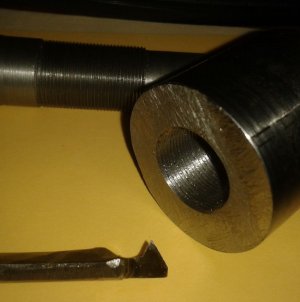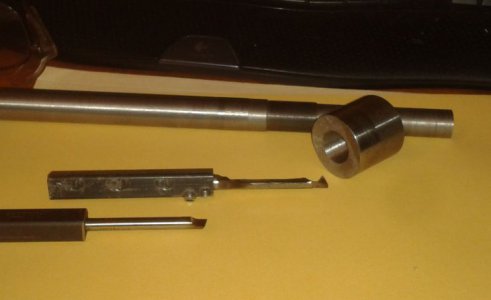Thanks for all the responses.
Have noted RJSarkowski response re heating and grinding an allan key etc thanks - and acquiring those skills, plus a gas torch, plus Soldering, brazing and welding will occur at some time in the future. Have saved the post for future reference on my PC.
Concrete nails - never thought of that - thanks, stored for future reference and use..
All my previous internal threads were fairly big and therefore relatively easy grinds.
This one was a bit smaller, and photos of final tool and 28tpi threads are attached. - major diameter of male thread is internal diam of nut is 0.665" tool was ground from 8mm round toolsteel and mounted in a 0.5" square bar - and yes ... I do understand that for some of you this is a trivial job .......... it was a big deal for me.
It was a hassle to grind the tool and get all the clearances working - I do all my grinding freehand and keep promising myself to build some jigs and guides but never get around to it and figure that the freehand grinding must be doing me some good but I will build some jigs one day.
But Gee Whizz I do still enjoy it when I cut a thread and then a nut and they fit together ............ makes me feel all technical.
So ............ its a hollow drawbar + hollow MT3 taper..... soon to become a chuck depthstop from the George Thomas books.
And.......... out of curiousity .............. what is the smallest one of these tools you have made ? and can you use broken HSS drill bits or is the shaft not HSS just the business of the drill is HSS ?
Bill







